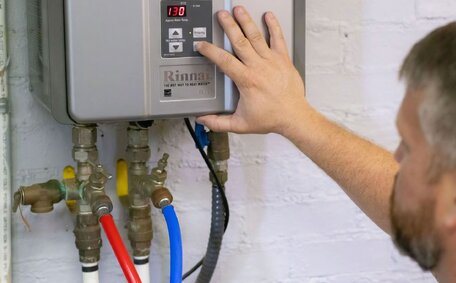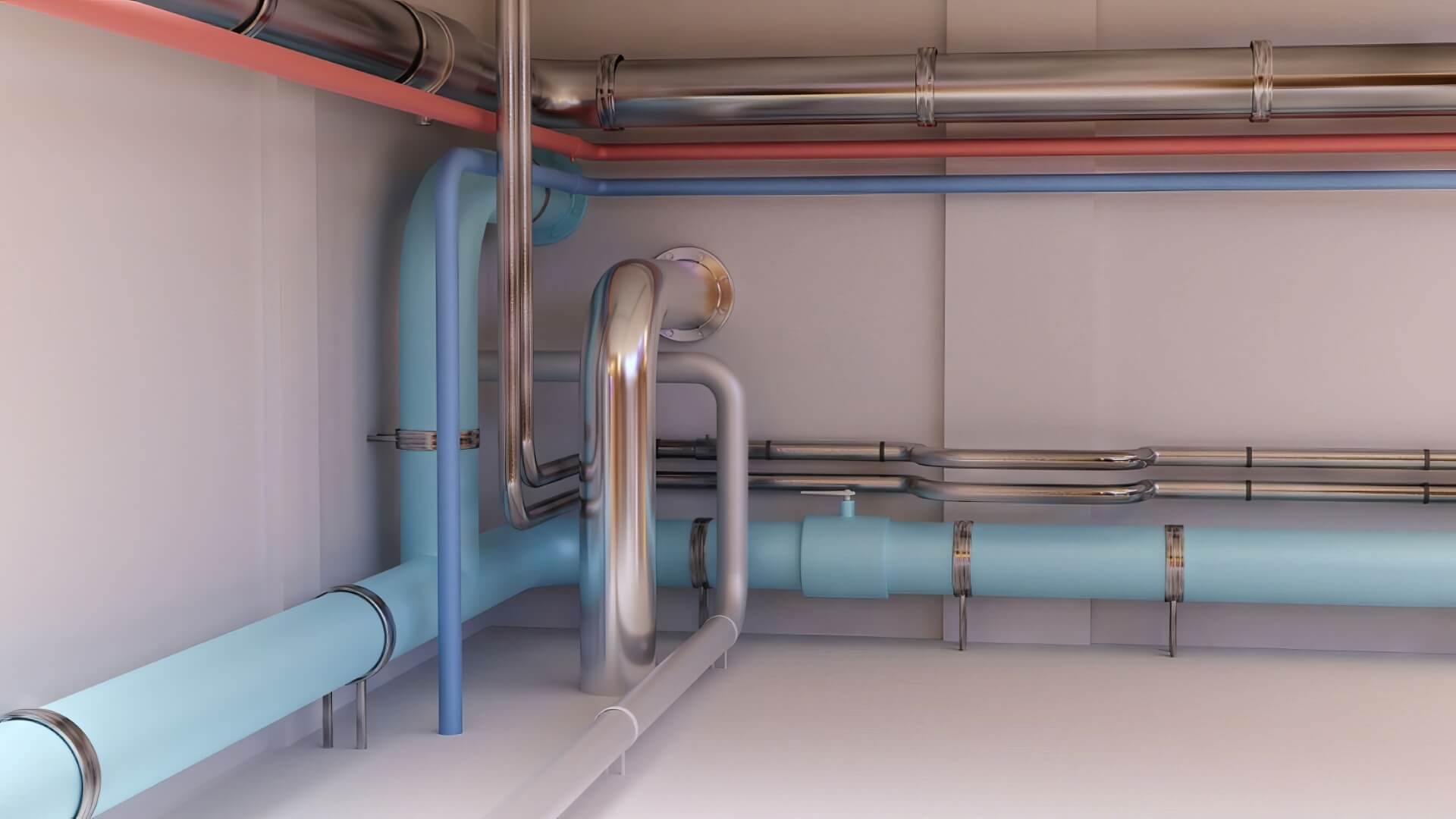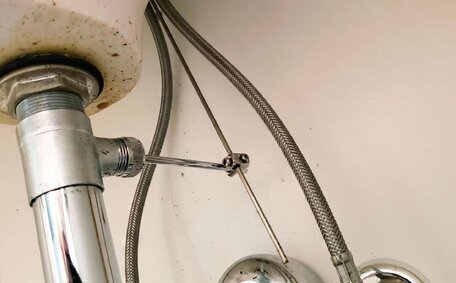Introduction to Natural Gas and Propane
When it comes to powering appliances and equipment for your home or business, two prominent fuel sources you’re likely deciding between are natural gas and propane. While both fuels provide efficient, clean-burning energy, there are key differences between natural gas and propane that affect their use in heating, cooking, and other applications.
In this informative guide from the expert plumbers at Glenwood Plumbing serving Sydney, we’ll explore everything you need to know about natural gas versus propane. We’ll examine their cost, efficiency, environmental impact, safety, and suitability for different applications to inform your choice between propane and its counterpart.
By understanding the pros and cons of each fuel type, you’ll be better equipped to choose the right option to meet your needs. Whether you’re looking to upgrade your appliances or build a new home in the Glenwood area, read on to discover the key distinctions between these two popular gas sources.
Composition and Sources
From a chemical standpoint, natural gas is predominantly composed of methane, accounting for 70-90% of its makeup. It also contains trace amounts of other hydrocarbon gases like ethane, propane, butane, and pentanes.
Propane is a distinct gas, isolated from small quantities found within natural gas and the vapours produced during petroleum crude oil refining.
So while natural gas propane both can fulfil similar functions as fuel sources, they have distinct chemical compositions. Natural gas’s high methane concentration along with other hydrocarbons gives it a specific energy output. Meanwhile, propane consists solely of propane and butane molecules, resulting in a higher concentration of BTU output.
Comprehending these differences assists our Glenwood Plumbing experts in advising the ideal gas supply for your specific household or commercial needs.
Energy Content and Efficiency
When comparing the energy efficiency of natural gas versus propane, it’s important to understand their energy density ratings. Energy content is measured in British Thermal Units (BTUs) per cubic unit.
Natural gas yields about 1,030 BTUs per cubic foot, whereas propane delivers a heftier 2,516 BTUs per cubic foot. Consequently, propane is more energy-dense, providing more than double the usable energy per cubic foot compared to natural gas.
What does this mean in practical use cases? If we used a common 48-pound BBQ gas grill propane tank as an example, This would allow for about 24 hours of grilling, showcasing substantial energy delivery per unit. To match that capacity using natural gas, you would need a much larger volume supply that gas can provide.
In household settings, natural gas compensates for its lower energy density with convenient access through established gas lines. An uninterrupted piped supply means it can meet demands for heating cooking and hot water needs.
The portability and higher energy per unit volume of propane render it an ideal choice for temporary needs, such as camping stoves, heaters, and generators. Propane offers the same amount of energy while occupying less storage space. And the high-pressure compression into liquid form inside tanks allows more onboard fuel capacity compared to compressed natural gas.
So while propane both packs more potential energy by volume, natural gas’s convenience and accessibility as a piped utility fuel gives it an efficiency advantage for most homes. These distinctions guide Glenwood Plumbing experts in advising the optimal gas supply for your requirements.
Cost Considerations
When deciding between natural gas versus propane, one of the biggest considerations is cost. There are several factors that contribute to the pricing of each fuel type.
On average, natural gas tends to be less expensive than propane on a per unit basis. Costs for these gases typically surge in winter due to higher heating needs.
However, natural gas pricing can fluctuate seasonally and regionally. Propane prices also follow a similar pattern.
For residential properties in Glenwood, having an existing connection to the mains gas pipeline significantly reduces the upfront cost of switching to or using natural gas. Installing a propane tank and distribution lines can add significant expense if your home isn’t already equipped.
Over the longer term though, propane may offer more predictable pricing due to its portability and ease of storage. This may appeal to commercial clients wishing to secure more stable energy budgets annually.
Understanding these cost factors allows our team at Glenwood Plumbing to recommend the most affordable and cost-effective gas supply based on your unique requirements.
Environmental Impact
When it comes to environmental impact, both natural gas and propane have pros and cons to consider.
Composed mainly of methane, natural gas contributes significantly to greenhouse effects, with methane leaks from pipelines exacerbating atmospheric warming.
However, natural gas produces fewer carbon dioxide emissions than other fossil fuels, such as oil or coal, when combusted. This makes it an appealing option to mitigate climate change impacts of heating and cooking needs.
Conversely, propane’s use is unlinked to pipeline infrastructure, eliminating these types of leaks. And pound for pound, propane also produces less CO2 emissions when burned compared to natural gas. This aspect positions propane as an environmentally friendlier alternative.
However, propane does require more processing and transportation to get to the end consumer. And the manufacture of disposable propane tanks does create other forms of industrial waste.
Ultimately, while both natural gas and propane are gas nonrenewable, propane may have a slight environmental advantage regarding direct end use. But risks from gas leaks during extraction and delivery balances this out from a broader lifecycle assessment.
Our experts at Glenwood Plumbing consider these environmental factors when advising clients on selecting gas supplies. Understanding your usage needs and ability to mitigate leaks can steer our recommendations for an eco-friendly solution.
Storage and Delivery Methods
When it comes to storing and delivering natural gas versus propane, there are some clear differences in their requirements.
Natural gas is typically delivered through a network of underground pipelines directly to homes and businesses. This eliminates the need for on-site storage capacity. Although some industrial facilities may utilise specialised high-pressure storage tanks and compressed natural gas CNG systems if not connected to a pipeline.
Propane, on the other hand, requires pressurised tanks located on-site for storage and distribution. These tanks come in sizes ranging from small portable cylinders to large permanent 1000 gallon+ installations. Propane is delivered by truck and pumped into these holding tanks as needed, typically in a liquefied state to maximize space efficiency.
Propane’s necessity for frequent tank refilling means more transportation considerations compared to natural gas piped continuously from central supply points. Propane is particularly convenient for off-grid applications like farms, as portable tanks offer a flexible fuel storage solution.
Understanding the unique storage and delivery requirements for each fuel type allows our team at Glenwood Plumbing to recommend the most suitable set-up to efficiently meet your household or business needs.
Safety Measures
When using any gas fuel, safety should always be the top priority. Our licenced plumbers at Glenwood Plumbing want to ensure our customers understand the risks and best practises when using either natural gas or propane.
Natural gas leaks pose a major suffocation risk as the gas replaces oxygenated air in confined spaces. Gas infrastructure should be regularly checked for leaks, which can be detected by a “rotten eggs” odour added to natural gas. If a major leak is suspected, evacuate the area immediately and contact emergency services.
Propane is heavier than air, meaning leaks tend to accumulate close to the floor. But always put safety first and call professional help for suspected large-scale leaks.
The gas is also odourless by itself, so an identifying scent is added as a safety measure. Small propane leaks can be handled by turning off gas valves and airing out the space.
Faulty gas appliances like water heaters and ovens can release toxic carbon monoxide. We strongly advise the installation of CO monitors in all homes, regardless of energy sources used, as carbon monoxide is an invisible, odourless gas that can be lethal. Keeping appliances serviced and exhaust systems clear reduces this risk.
Ensuring proper ventilation while using any gas-powered devices indoors is also critical to prevent dangerous build-up of emissions. Our experts are available to audit your property’s gas systems and offer customised advice for leak prevention and appliance safety, tailored to your usage.
Installation and Appliance Compatibility
When installing systems that utilise natural gas versus propane, there are a few key considerations around compatibility and configuration required for appliances.
Natural gas appliances are designed for use specifically with natural gas, taking into account its standardised BTU output and pressure rating. These appliances are connected to the mains through fixed gas lines.
Propane appliances are specifically configured to accommodate the differences in fuel properties compared to natural gas appliances. They are equipped with an orifice ring which regulates the higher pressure propane gas supply from tanks to the output pressure the appliance is designed for. Flexible hoses typically make this last gas line connection.
For households with existing natural gas lines, the simplest option is to directly replace an older appliance with a new, modern natural gas model. However, those converting their fuel source from natural gas to propane will need to invest in propane-compatible appliances.
Some modern gas appliances also come equipped for easy conversion between fuel sources. Our team at Glenwood Plumbing can advise on compatible makes and models, as well as handle any adjustments required to go from natural gas to propane or vice versa.
We also offer full installation services for household gas lines, tanks, appliances and conversions. Our professional plumbers can guide you to the most cost-effective and practical gas supply option for your needs, be it heating water, cooking, or other uses.
Choosing Between Propane and Natural Gas
Considering natural gas vs. propane for your Glenwood property, there are a few key factors our team at Glenwood Plumbing recommends keeping in mind:
- Evaluate your usage requirements in terms of hot water, heating, cooking, etc. What fuel source makes the most sense for suitability and appliance compatibility?
- Consider existing infrastructure and required upgrades. Is your property already connected to natural gas pipelines or will propane tanks need installing?
- Compare costs over both the short and long term. While propane may have higher upfront expenses, market fluctuations can influence pricing of both fuel sources.
- Reflect on environmental impact based on emissions from use, as well as leaks. Are there measures you can adopt to lessen your carbon footprint?
- Assess safety considerations like leak detection, ventilation needs and maintaining compliant gas appliances.
- Think about storage and delivery logistics if relying more heavily on bulk propane refills versus piped natural gas.
Considering the multitude of factors involved, choosing between natural gas and propane is multifaceted. Our qualified plumbers skillfully evaluate your domestic or business setup to provide objective advice. We offer tailored counsel on choosing and fitting the most economical, safe, and eco-friendly gas supply.
In the Glenwood region, for bespoke recommendations, get in touch via email or phone us to arrange your initial consultation with Glenwood Plumbing.






